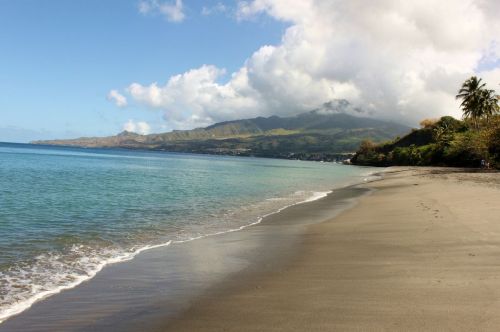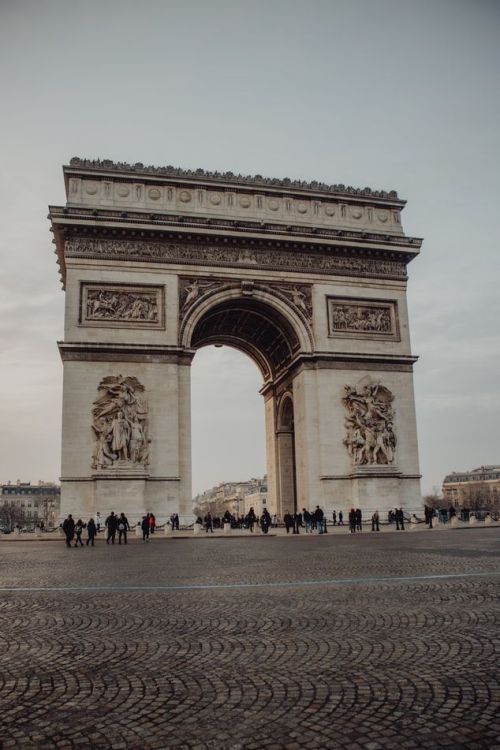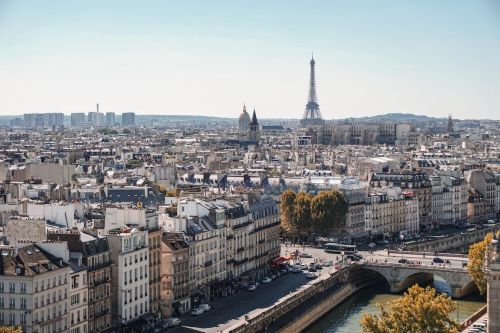Napoleon Bonaparte is considered the most outstanding military commander in history, and one of the most important figures in French and world history. Nevertheless, he is a controversial figure, for although his military genius and many achievements in ordering the legal and economic functioning of France after the Revolution are acknowledged, history accuses him of bravado in disposing of human lives on many battlefields, tyranny and in many cases of being a cruel aggressor. In the Polish independence tradition of the 19th century, the hopes associated with the person of Napoleon for the restoration of independence aroused respect for him, which was a manifestation of patriotism, an expression of love for the homeland, and a sense of national identity.
He lived from 1769 to 1821.
He was the son of an indigent nobleman of Italian descent, Carlo Maria Buonaparte, and his wife, Letizia. He had seven siblings, four brothers (Joseph, Louis, Lucien, Jerome) and three sisters (Carolina Bonaparte-Murat, Pauline Bonaparte-Borghese, and Eliza Bonaparte-Baciocchi). The Buonaparte family lived in Corsica in a family home called Maison Bonaparte.
As a 10-year-old, he began his education at the seminary in Autun, where he learned French. He attended there for three months, but did not learn correct French pronunciation - he spoke with a Corsican accent.
He was one of fifty royal scholarship recipients. At school, he had a reputation as a loner who preferred studying and reading books to the company of better-off classmates. He most enjoyed studying the works of Polybius, Plutarch, Flavius Arrian, and Quintus Rufus. After five years at school, he continued his studies at the I'Ecole Militaire in Paris. He graduated from this school in 1786 with the rank of second lieutenant and was assigned to serve in the artillery.
Napoleon always respected his mother, treating her with typical Corsican reverence. His attitude toward his siblings, however, was different. He treated them roughly and authoritatively. After his father's death, it was he, and not his eldest brother Joseph, who took over the function of caring for the family. He took care of his brother Ludwig, who lived with him in various barracks, and taught him everything. Napoleon also had a special affection for one of his sisters - Pauline Bonaparte, to whom he related with great love.
Instead, he tried to join the Corsican insurgents of Paoli (Corsican national hero, leader of the independent Corsican state, opponent of Napoleon Bonaparte) but was not accepted. In this situation, he sided with the French and joined the revolution. He was promoted to lieutenant, and when an anti-French uprising broke out in Corsica in 1793, the Bonaparte family had to leave the island.
He won the support of Augustin Robespierre, younger brother of the revolutionary leader Maximilien Robespierre. A Corsican acquaintance of Salicetia also supported him. The siege of Turin used the strategy planned by Napoleon, and achieved success against the English, and Napoleon himself was wounded in the thigh during the assault.
He was noticed by the Committee of Public Salvation and assigned to the artillery forces in the Army of Italy.
He was appointed to take command of the troops defending the Republic and later became commander of the interior troops and a major general.
After marrying Josephine, Buonaparte changed his name, giving it a French spelling and pronunciation. Josephine, thanks to her connections, probably caused Napoleon a few days after the wedding to take command of French troops fighting the Austrians in the territory of northern Italy.
Bonaparte had an enormous number of mistresses. Among them were ladies of arms in almost all European capitals and poor middle-class women. Most of his mistresses were recruited from among the courtesans of his sisters, and Parisian actresses and singers. Many of these women helped him in his career. Among them was also a Polish woman, Maria Walewska, with whom he had a son, Joseph Florian Alexander Count Colona Walewski. The emperor is credited with six illegitimate children and one legitimate son, Napoleon II Bonaparte, known as "the Eaglet."
The Polish Legions, commanded by General Jan Henryk Dabrowski, served under his orders.
To end the war with Great Britain, the last country of the First Anti-French Coalition, formed in 1793 against the Revolution in France, Napoleon proposed to conquer India - the pearl of the British Crown. He set out for Egypt, which was to serve as a base camp for the attack on India. The expedition to Egypt, which began in 1798, involved 38,000 sailors and soldiers and 175 scholars and artists who were to study Egyptian culture and history.
The interference of Turkish troops in the conflict and the seizure of Malta by the English forced the French to capitulate in 1801.
It took place on November 10, 1799. Napoleon (as well as Ducos and Sieyes) were appointed provisional consuls.
To win the favor of the aristocracy, he declared an amnesty for royalist émigrés, who were allowed to return to the country, but the property seized from them was not returned. He concluded a new concordat with the Catholic Church, which stipulated the inviolability of earlier requisitions and sales of church property. The concordat established salaries for bishops, introduced religious instruction in state schools, and facilitated the construction of new churches and church schools.
Napoleon introduced in France, for the first time in the world, compulsory free education in public schools for both sexes of all states. To curb the corruption that was omnipresent in the country, he adopted the principle of appointing judges and stepped up the fight against robbery, forgery, etc. He established the institution of prefects in the departments and mayors in the municipalities (which has persisted to this day). Many scholars consider Napoleon's greatest success to be the publication of the Civil Code of 1804, which established the basics of the system: personal liberty, equality of all citizens before the law, secularization, and inviolability of private property. The name Civil Code of the French remained in force until 1807 when it was changed to the Napoleonic Code, with which the emperor wanted to emphasize his connection with the codification. Eventually, after many changes, it reverted to its original name. The articles of the Napoleon Code in the area of personal law largely repeated the Civil Code of the Kingdom of Poland, in force since 1826.
Such measures made it possible, for example, to pay pensions.
The transaction amounted to $15 million. Napoleon realized that it would be difficult to keep such a vast territory in the States, and he wanted to concentrate his army in the European arena. With this transaction, the United States expanded its territory by more than two million square kilometers.
Napoleon by this time had established himself as a powerful ruler, and to add splendor to the coronation ceremony, he requested that Pope Pius VII come to Paris for it. The coronation mass celebrated by the pope was held at Notre-Dame Cathedral. Napoleon agreed to be anointed and blessed by Pius VII, while he took the crown from his hands and placed it on his head himself. This was a symbolic emphasis on the fact that he owed it to himself to gain supreme power in the state and crown himself emperor. Earlier, he had crowned Josephine as empress himself, reducing the role of the Pope to that of a mere spectator. In May 1805, in Milan Cathedral, Napoleon crowned himself King of Italy.
Napoleon fought in Austria, Spain, and Germany, where he won great victories (Marengo, Ulm, Austerlitz, Samosierra, Wagram). He defeated Prussia at the battles of Jena and Auerstedt and Russia at Friedland. He suffered defeats at sea at Abu Kire and Trafalgar. When the alliance with Alexander I began to weaken due to growing international tension, Napoleon declared war on the Russian Empire in 1812. The French fought two victorious battles there - at Smolensk and Borodino. Napoleon ventured far to the east, and when it became clear that he would not be able to wait out the harsh winter in Moscow, which had been deliberately burned by the Russians, he ordered a retreat. The Russians did not agree with Napoleon's proposed quick peace; instead, they harassed the Grand Army with constant attacks by the regular Russian army, Cossacks, and partisans. In addition, gigantic frosts decimated the Grand Army, which suffered a severe defeat in Russia.
To its territory, it added Belgium, the Netherlands, the German provinces on the North Sea, the Illyrian Provinces in the Balkans, and a large part of the Italian territories, including Rome. In addition, the kingdoms of Spain, Italy, and Naples, the Union of the Rhine, the Swiss Republic of Helvetia, and the Duchy of Warsaw remained in direct dependence on France.
Maria Louisa bore him a son - Napoleon II. He was the emperor's only legitimate son.
It was a war between French troops led by Napoleon and the troops of the anti-French coalition (Austria, Prussia, Russia, and Sweden). Among others, Prince Joseph Poniatowski, the only marshal of Polish nationality, was killed in this battle. The Allies captured Paris in March 1814 and the Russian occupation of the city began.
Following demands for unconditional surrender and relinquishing the throne, Napoleon signed an unconditional abdication (Treaty of Fontainebleau) on April 6, 1814. He was exiled to the island of Elba in the Mediterranean Sea.
Napoleon's famous 100 days ended with his defeat on June 18, 1815, at the Battle of Waterloo in Belgian territory. France declared surrender, and the deposed Napoleon was interned on Saint Helena Island, in the South Atlantic. The defeat at Waterloo is largely blamed on the French themselves, the treachery of the officers and soldiers whom Napoleon elevated by giving them titles and honors, and the secret collaboration of Prince Charles Talleyrand, a former Napoleonic minister of diplomacy, with Tsar Alexander I of Russia.
He died on May 5, 1821, at the age of 51. In 1840, his remains were transported to Paris, where he was buried in the Church of the Invalides. For a long time, the common belief was that Napoleon was poisoned with arsenic. However, research conducted by an international team in 2007 ruled out this diagnosis. It was found that Napoleon suffered from advanced stomach cancer (Napoleon's father also died of stomach cancer). A retired doctor from Denmark has a different idea on the subject, claiming that the emperor already had problems with his urinary tract from the age of three, and it was this condition that contributed to his premature death.
Right-hand traffic was first introduced by Denmark in 1758. At first only in Copenhagen, and from 1793 throughout the country. In 1794, the French revolutionary authorities introduced mandatory right-hand traffic for all traffic participants. Napoleon only popularized it in the countries he conquered.
However, there is no evidence of Napoleon's contribution to formulating or proving this theorem.
One anecdote says that during one of his deliberations, Napoleon could not reach a map lying on a shelf. An aide-de-camp offered to help, telling the emperor that he was bigger than him. Bonaparte replied, “Not bigger, just taller!”
Shorter than Napoleon were Vladimir Lenin (164 cm) and Benito Mussolini (160 cm), among others.
He was not the only one among the famous historical figures to suffer from this type of phobia. In addition to him, cats were feared by Julius Caesar, Genghis Khan, Alexander the Great, Benito Mussolini, and Adolf Hitler. Napoleon was so afraid of cats that when they were in the vicinity, he was able to jump on the table out of fear and wait there until the cat was led out of the room. Such a situation occurred during the Battle of Wagram. At one point, one of his aides heard a cry for help coming from the commander's tent. Thinking that Napoleon was in danger, he drew his gun and entered the tent. Inside, it turned out that the "god of war" was curling up sweaty and stabbing the air with his saber in defense against a stray cat that had entered the tent.
It tells the story of a soldier at war and his beloved woman waiting at home. The story was based on the young Napoleon's own experiences, specifically his affair with Eugenie Bernardine Clary, the future wife of Charles XIV John, King of Sweden and Norway. The couple even managed to get engaged, but the engagement was later broken off and Bonaparte married Josephine de Beauharnais. The novel was not published until 2008.








